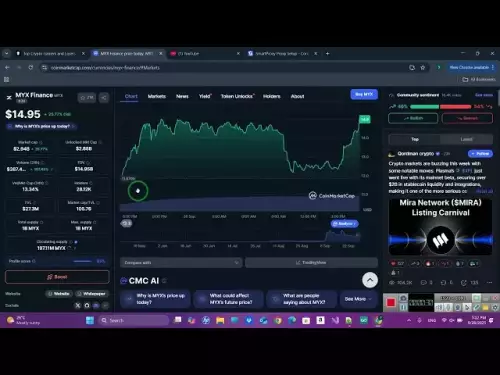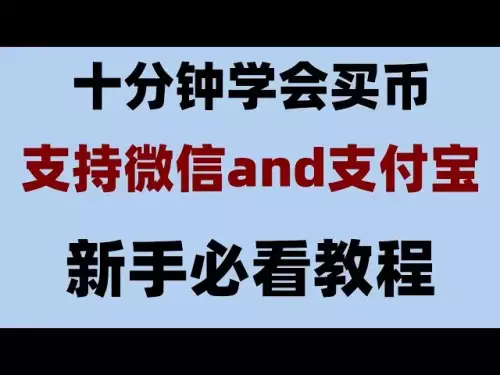 |
|
 |
|
 |
|
 |
|
 |
|
 |
|
 |
|
 |
|
 |
|
 |
|
 |
|
 |
|
 |
|
 |
|
 |
|
Cryptocurrency News Articles
Decoding the Korean Crypto Market: FOMO, Meme Coins, and the "Kimchi Premium"
Dec 20, 2024 at 02:51 pm
Recently, with the surge of "antique coins" like XRP, the news of "Korean aunties rushing into the crypto market" has spread again in the community.

With the recent surge of "antique coins" like XRP, news of "Korean aunties rushing into the crypto market" has resurfaced in the community. Meanwhile, the trading volume of related tokens like XRP and APT on Korean exchanges such as Upbit and Bithumb has even surpassed that of Binance at times. This indicates that the trading volume from just the Korean market for these tokens is on par with the total trading volume from the rest of the world combined.
For a long time, the crypto community has viewed listing on Upbit as a significant boon for projects. After a token is listed on these Korean exchanges, its price often skyrockets in a short period. This strong buying power has piqued global curiosity about the "kimchi premium." How exactly does the Korean cryptocurrency market operate? What kind of speculation logic do investors here have?
Rhythm interviewed Andy, a member of Frax Finance who has been engaged in crypto development and education in Korea for many years, to delve into the investment logic and real situation of the Korean crypto market.
Koreans' "Another Stock Market"
BlockBeats: You have a very strong presence in the Korean market, such as large-scale buying. How do people enter the cryptocurrency market, and how do they choose their coins?
Andy: Frankly speaking, this is still a puzzle that everyone is trying to solve. One thing I am sure of is that DeFi is quite weak here because the deposit and withdrawal processes on trading platforms are very convenient. I am a Canadian citizen and have lived in Korea for 10 years. In the early days, I could trade on Upbit and Bithumb, and I remember it took me only five minutes to open a bank account and connect it to Upbit or Bithumb, easily trading and withdrawing in Korean won.
So in Korea, it is very easy for people to enter the crypto market and invest; it is not difficult, although everyone must open an account at a specific bank. Secondly, I think the act of trading cryptocurrencies carries a sense of "hope" among Korean investors, especially among the younger demographic aged 20 to 30.
Moreover, the media in Korea is discussing this topic. You can see that people from their 20s to 60s or even 70s are participating in the crypto market. I don't know if you've heard, but the front of Bithumb's office was once crowded with elderly people aged 50 to 70 trying to open accounts, especially when the new bull market started.
BlockBeats: Was this happening in the last bull market or this one?
Andy: This is happening in this bull market, just in the last week or two; it has been reported in the news.
Retired people aged 50 to 70 were queuing to open accounts, and the line even reached over 3,000 people; it was really crazy. Mainstream media and social networks are also discussing the secondary market for cryptocurrencies. Although mainstream media often tends to portray its dangers, more and more people are starting to pay attention as Bitcoin hits historical highs.
According to media reports, a nearly 60-year-old housewife said while queuing to open an account: "It feels wasteful to keep retirement funds in a bank account, so I tried investing in Bitcoin and Dogecoin"; image source from the internet.
Back to the younger crowd, I think many people in their early 20s see this as a chance similar to buying a lottery ticket. I don't want to say it's gambling, but they do see cryptocurrencies as a way to make quick money because the media reports they encounter often highlight how some people made a lot of money through cryptocurrencies, which is more appealing than news about losses. Many people in their 30s tend to be a bit more strategic, trying to understand the projects behind the tokens. However, even so, many of my friends still buy tokens first and then ask in the community what the project is, so most people don't really understand the true situation of the projects.
This mindset may stem from a strong FOMO, which is also quite common in Korean culture; the trend-following culture in Korea is very extreme. Whether in entertainment or investment, many people feel that if they don't participate, they will fall behind the trend, even feeling disconnected from the entire culture. So if you don't know what you're investing in, it might be due to the fear of missing out on opportunities or friends suggesting you get involved.
Having lived in Canada, where everything is relatively laid-back, I never felt the pressure to chase trends. But after coming to Korea, I felt the prevalence of a fast-paced lifestyle, such as needing to graduate, serve in the military, get married, find a job, and invest by a certain age. So when the people around you are trading cryptocurrencies on Upbit or B
Disclaimer:info@kdj.com
The information provided is not trading advice. kdj.com does not assume any responsibility for any investments made based on the information provided in this article. Cryptocurrencies are highly volatile and it is highly recommended that you invest with caution after thorough research!
If you believe that the content used on this website infringes your copyright, please contact us immediately (info@kdj.com) and we will delete it promptly.


























































